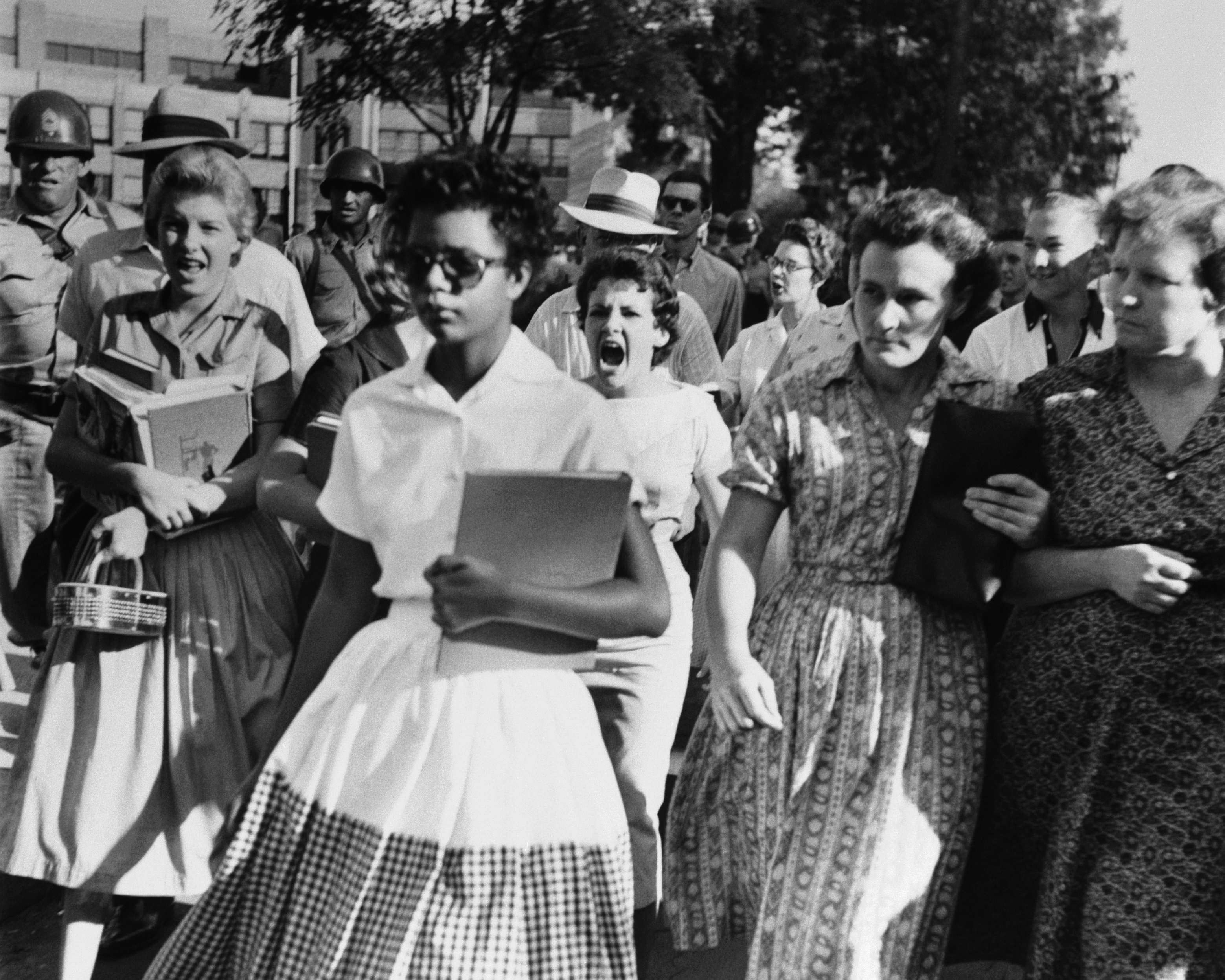Little Rock Nine Still Impacting Education

by, Jessica Mascle, Anthony Riccio, Nate Streicher & Eric Levine – Amherst, NY

At the Central High School National Historic Site Museum
On an early Sunday morning in July the Tapestry Charter School Civil Rights team traveled to Little Rock, AR for a truly unique experience. We designed our Fund for Teachers fellowship to attend an educators’ Civil Rights Institute to help students make important connections between historic events and challenges of modern society in a way that engages the question, “How can I make a difference?” Little did we know that casual conversations had with fellow educators, hotel workers, shop keepers and cab drivers would be engraved in our minds and retold in our stories of the battle for civil rights.
During the course of the week, we were students engaged in the investigation of primary sources, fieldwork, experts and assessment tools. Our group traveled to several historic sights including the Arkansas State Capital and Little Rock Central High School. During these experiences, participants read excerpts from Warriors Don’t Cry by Melba Pattillo Beals, which fostered a visual understanding of the author’s writing and therefore created an emotional connection that reading the text in a classroom would not foster.
The importance of the Little Rock Nine is incalculable. Perhaps the most compelling discovery was the idea of personal narratives of the students themselves and the community at large. During our time in Little Rock, we were surprised by the impromptu “narratives” we were told by cab drivers as we were given informal sight seeing tours of the city. We were inspired by working with other educators, learning how different schools teach social justice issues, learning from the people who were living in Little Rock during the school integration crisis, learning new ways to use protocols for writing and processing fieldwork, and gaining new ideas for writing projects and final products.
The zenith of the week was sitting down and speaking with our interview subjects. Our conversations turned into our product:personal narratives telling the story of our subjects – their struggles, hardships
and ultimate ability to succeed in the South.
Far north of the Mason-Dixon Line we returned with the reality that although the fight for Civil Rights has come a long way, we still have a long way to go. From conversations with other Institute participants, informal conversations with cab drivers and shop keepers, and the interview sessions, all those involved painted a vivid picture of how America is still not equal.
Our experiences during the Institute allowed us to reevaluate our teaching plans to focus on connections from the Civil Rights Movement to modern day civil rights efforts, including those in our own school community, and what they hope to achieve. Western New York is a very diverse place and being so lends itself to the stories, struggles and tribulations of those who live here. By examining Western New York and our own school, we will be able to create a personal connection with our students, making the content more meaningful.
Experiences on our fellowship taught us is that history is better told by listening to a story than simply reading it out of a textbook. We now teach our students interview and oral history recording techniques that we learned and send them out into the Western New York community to obtain first hand stories of community members that have encountered hardships and struggles trying to achieve equality and respect so that future generations will be able to read and partake in the local civil rights movement. Additionally, we:
- Revised and implemented a successful 11th grade curriculum to narrow the focus from the evolution of the American Ideals to the application of the ideals of Democracy in Buffalo, NY;
- Created a personal narrative project for his 12th grade Economics and Government students that is influenced by the techniques learned at the Civil Rights Institute. Students interview local business leaders, politicians,and activists to explore the meaning of “heroism.” They then write personal narratives based on their interviews, which are presented to the subjects in person;
- Created a 10th grade curriculum with a fellow teacher to broaden the focus from the tension between government oversight and individual liberties to a deep look at the importance of human rights and the violations of this basic idea. This includes the case study of the Little Rock Nine as a point of departure for rest of the expedition; and,
- Wrote a series of lessons to explore the ties between the search for civil rights and the use of restorative justice to create a strong community.
The most memorable experience of our fellowship was a conversation we had with a cab driver named Owen. We asked him to reflect on his 60 years living in Little Rock and if life has changed for the better. He told us “you are naive to think that discrimination has ended. It has simply just changed its shape, color and stripes.“
Our job as educators is to make sure our society does not become complacent with injustices, and to make sure our students and children know that issues can not be changed if others do not know about them. Through case studies in classes and activities in crew, students will deepen their understanding of civil right and the importance of community.
 Back to Blogs
Back to Blogs